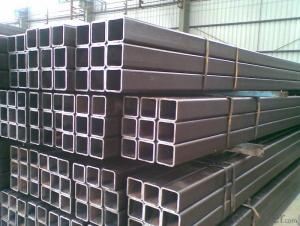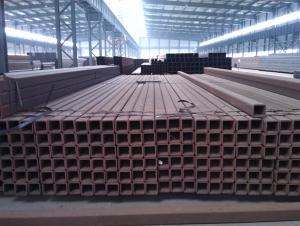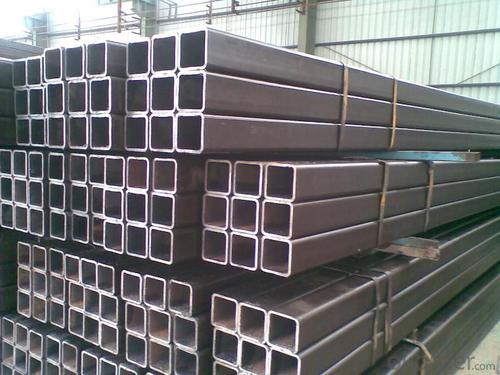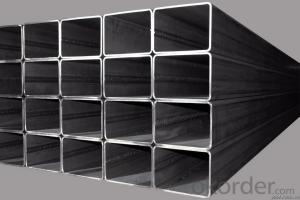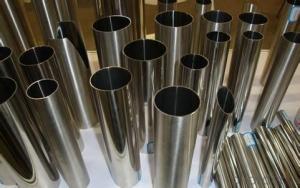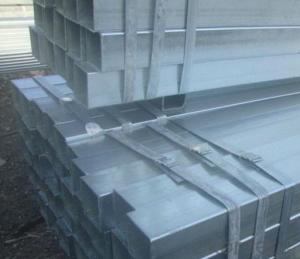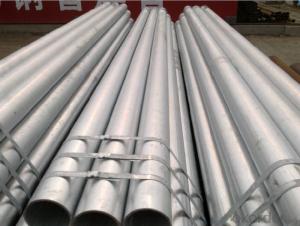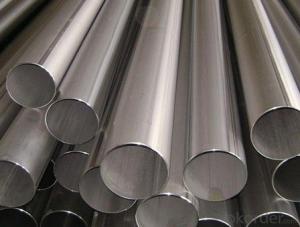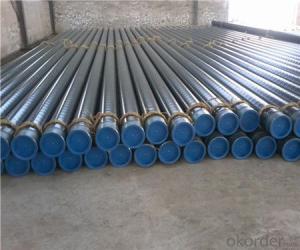ASME API 5L High Quality Square Steel Pipe
- Loading Port:
- Tianjin
- Payment Terms:
- TT or LC
- Min Order Qty:
- 25 m.t.
- Supply Capability:
- 10000 m.t./month
OKorder Service Pledge
OKorder Financial Service
You Might Also Like
Product Description:
1、Structure of Hollow Section Steel Pipe Various Size:
The square tubes are used in structural projects, shelves, racks, trailers and in ornamental purpose. The framework made by square steel tubes, is used for providing support to the roof. This framework is also used as roof top ventilation baffles. With compare to round steel tubes, square steel tubes are little more efficient. To be used for construction, furniture structures as well as other fabrication purposes. It is widely used in building, machine, chemical equipment, automobile industrial, container, it is also applied to agriculture and mine machine.
2、Main Features of Hollow Section Steel Pipe Various Size:
• High manufacturing accuracy
• High strength
• Small inertia resistance
• Strong heat dissipation ability
• Good visual effect
• Reasonable price
3、Hollow Section Steel Pipe Various Size Specification:
Standard | ASTM A500, GB6728 |
Grade | A, B, C, Q195, Q235, Q215 |
Thickness | 0.6-10MM |
Section Shape | Square |
Outer Diameter | 10*10-500*500 |
Place of Origin | TIANJIN, China (Mainland) |
Secondary Or Not | Non-secondary |
Application | Hydraulic Pipe |
Technique | HOT-ROLLED |
Certification | CO, MTC, CI, PL |
Surface Treatment | factory state or painted black |
Special Pipe | |
Alloy Or Not | Non-alloy |
Length | 5-12M |
Outer Diameter | 10*10-500*500 |
1) Material: A, B, C, Q195, Q235, Q215
2) Specification range: 10*10-500*500 WT:0.6-10MM ,length:6-12m or according to the requirement of clients.
3) Excutive standards:GB,ASME API5L.ASTM A 106/A53,Despite of the above standards,we can also supply seamless steel pipe with standard of DIN,JIS,and so on,and also develop new products according to the requirements of our clients!
4) Surface:black lacquered,varnish coating or galvanized.
5) Ends:Beveled or square cut,plastic capped,painted.
6) Packing:bundles wrapped with strong steel strip,seaworthy packing.
4、Packaging & Delivery
Packaging Details: | seaworthy package,bundles wrapped with strong steel strip |
Delivery Detail: | 15-30days after received 30%TT |
5、FAQ of Hollow Section Steel Pipe Various Size:
①How is the quality of your products?
Our products are manufactured strictly according to national and internaional standard, and we take a test
on every pipe before delivered out. If you want see our quality certifications and all kinds of testing report, please just ask us for it.
Guaranteed: If products’ quality don’t accord to discription as we give or the promise before you place order, we promise 100% refund.
②How about price?
Yes, we are factory and be able to give you lowest price below market one, and we have a policy that “ for saving time and absolutely honest business attitude, we quote as lowest as possible for any customer, and discount can be given according to quantity”,if you like bargain and factory price is not low enough as you think, just don’t waste your time.Please trust the quotation we would give you, it is professional one.
③Why should you choose us?
Choice happens because of our quality and price. Additionally, we can also offer professional products inquiry, products knowledge train (for agents), fast goods delivery, outstanding customer solution proposals. Our service formula: good quality + good price + good service=customer’s trust.
SGS test is available. Customer inspection before shipping is welcome. Third party inspection is OK.
6、Hollow Section Steel Pipe Various Size Images:
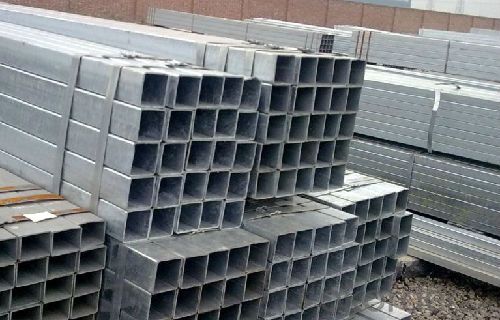
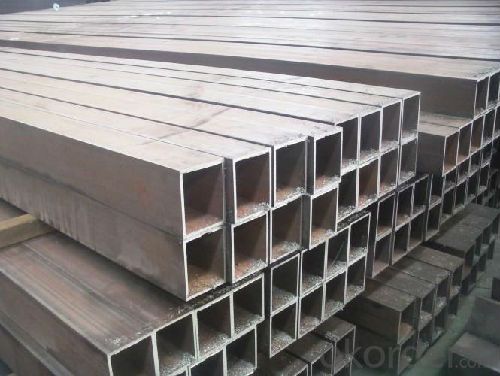
- Q: Can steel pipes be used for sewer systems?
- Yes, steel pipes can be used for sewer systems. Steel pipes are commonly used in sewer systems due to their durability, strength, and resistance to corrosion. They are able to withstand the harsh conditions and high pressure of sewage flow, making them a reliable choice for sewer infrastructure.
- Q: What are the different end finishes available for steel pipes?
- There are several different end finishes available for steel pipes, depending on the specific application and requirements. Some of the most common end finishes include: 1. Plain End: This is the simplest and most common type of end finish, where the pipe ends are cut square and left plain without any additional treatment or threading. 2. Beveled End: A beveled end is an angled cut made at the end of the pipe, usually at a 30-degree angle. This allows for better welding and ensures a smooth transition between pipes. 3. Threaded End: Threaded ends are commonly used for pipes that need to be connected with other components using threaded fittings. The ends of the pipe are cut with external threads, allowing for easy assembly and disassembly. 4. Coupling End: Similar to threaded ends, coupling ends have internal threads instead of external threads. This allows for the connection of pipes using couplings or connectors. 5. Grooved End: Grooved ends are commonly used for pipes in fire protection systems or other applications that require quick and easy installation. The ends of the pipe are grooved, and then a coupling is used to connect and secure the pipes. 6. Flanged End: Flanged ends have a flat, wide surface with holes for bolts. This type of end finish is used when the pipe needs to be connected to other components using flanges, such as in piping systems or equipment connections. Each of these end finishes serves a specific purpose and is chosen based on the requirements of the application. The end finish selected will depend on factors such as the type of connection needed, the pipe's intended use, and the specific industry standards and regulations that apply.
- Q: What does "1.5" steel tube mean?
- 1.5 inch [1 1/2 steel pipe, outer diameter 48.3mm, 1.5 inches, refers to the pipe bore is approximately the inner diameter (25.4x1.5 = 38.1mm). [DN40] the specific parameters of the steel pipe are as follows;The average wall thickness is: 3.5mm;The minimum wall thickness is 3.06mm,Nominal diameter is 40mm,External Jing is 48.3mm,
- Q: Can steel pipes be used for shipbuilding?
- Yes, steel pipes can be used for shipbuilding. Steel pipes are commonly used in shipbuilding due to their high strength, durability, and resistance to corrosion. They are utilized for various purposes such as structural components, piping systems, and ventilation systems in ships.
- Q: Can steel pipes be used for gas transportation?
- Yes, steel pipes can be used for gas transportation. Steel pipes are commonly used for the transportation of natural gas, propane, and other gases due to their high strength, durability, and resistance to corrosion. They can effectively withstand high pressure and extreme temperatures, making them a reliable choice for gas transportation systems.
- Q: Can steel pipes be used for conveying solid materials?
- Yes, steel pipes can be used for conveying solid materials. Steel pipes are commonly used in industries such as construction, oil and gas, and mining to transport solid materials such as ores, coal, grains, and various other solid substances. The durability and strength of steel make it suitable for handling the weight and pressure of solid materials during transportation.
- Q: How do steel pipes handle water hammer?
- Steel pipes can effectively handle water hammer by absorbing the pressure surges caused by sudden changes in water flow. The solid and durable nature of steel helps to dampen the impact and prevent damage to the pipes or other components of the plumbing system. Additionally, steel pipes can be designed and installed with appropriate supports, expansion joints, and water hammer arrestors to further mitigate the effects of water hammer.
- Q: How are steel pipes used in the manufacturing of wind turbines?
- Steel pipes are used in the manufacturing of wind turbines primarily for constructing the tower, which provides structural support and stability to the turbine. These steel pipes are typically large in diameter to withstand the strong winds and carry the weight of the turbine components. Additionally, steel pipes are also utilized for the transmission of electrical cables within the turbine, ensuring efficient power generation.
- Q: What are the common welding techniques used for steel pipes?
- The common welding techniques used for steel pipes include shielded metal arc welding (SMAW), gas tungsten arc welding (GTAW), gas metal arc welding (GMAW), and flux-cored arc welding (FCAW). These techniques are widely used in various industries for joining steel pipes due to their efficiency, reliability, and ability to produce strong and durable welds.
- Q: Are steel pipes suitable for underground irrigation systems?
- Underground irrigation systems can indeed benefit from the use of steel pipes. Renowned for their durability and strength, steel pipes exhibit resistance to corrosion and can withstand significant pressure. Furthermore, they are less prone to cracking or breaking when subjected to the weight and pressure of the ground. Moreover, steel pipes boast an extended lifespan, alleviating the need for frequent replacements. Nevertheless, it is crucial to consider the composition of the water being conveyed, as certain minerals or chemicals may induce corrosion over time. In such instances, it might be necessary to employ corrosion-resistant coatings or liners. All in all, steel pipes represent a dependable choice for underground irrigation systems, particularly in regions characterized by elevated water pressure or when durability takes precedence.
Send your message to us
ASME API 5L High Quality Square Steel Pipe
- Loading Port:
- Tianjin
- Payment Terms:
- TT or LC
- Min Order Qty:
- 25 m.t.
- Supply Capability:
- 10000 m.t./month
OKorder Service Pledge
OKorder Financial Service
Similar products
Hot products
Hot Searches
Related keywords
